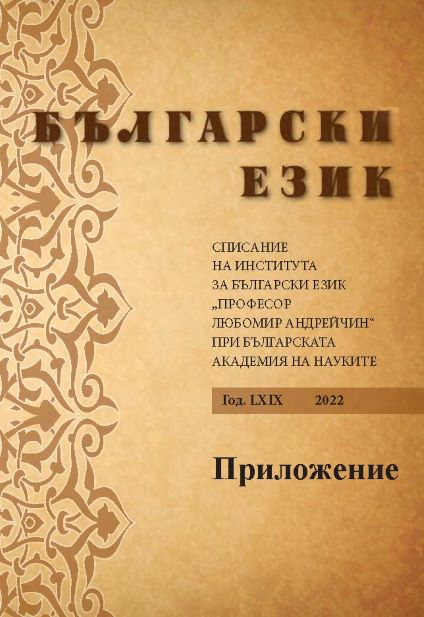Съюзите да и че в рамките на предиката (съставен или сложен съставен) след мога и взема
The Subordinate Conjunctions да and че after мога and взема
Author(s): Elena Kanevska-NikolovaSubject(s): Language studies, Language and Literature Studies, Theoretical Linguistics, Applied Linguistics, Philology
Published by: Институт за български език „Проф. Любомир Андрейчин“, Българска академия на науките
Keywords: subordinate conjunctions да and че; verbs мога and взема; modal verbal predicates
Summary/Abstract: The article analyses cases in which the modal verb мога is a component of a verbal predicate or forms a predicate on its own. In addition, I consider verbal predicates formed by взема and a lexical verb introduced by да or че (да не вземе да се откаже; взе че се смили). In these latter cases, the desemantised component preceding a lexical perfective aspect verb shifts from a phase verb to a modal verb expressing suddenness, unexpectedness, surprise with the situation denoted by the lexical verb. The aorist form of взема allows only the subordinate conjunction че followed by a lexical perfective aspect verb (взе че дойде), while the conjunction да is used after the present or future forms of взема (да взема да отида, ще вземе да дойде). There are also morphological restrictions with the modal verb мога – after the aorist form only a perfective aspect verb is possible (не можах да отида).
Journal: Български език
- Issue Year: 69/2022
- Issue No: Special
- Page Range: 230-237
- Page Count: 8
- Language: Bulgarian

